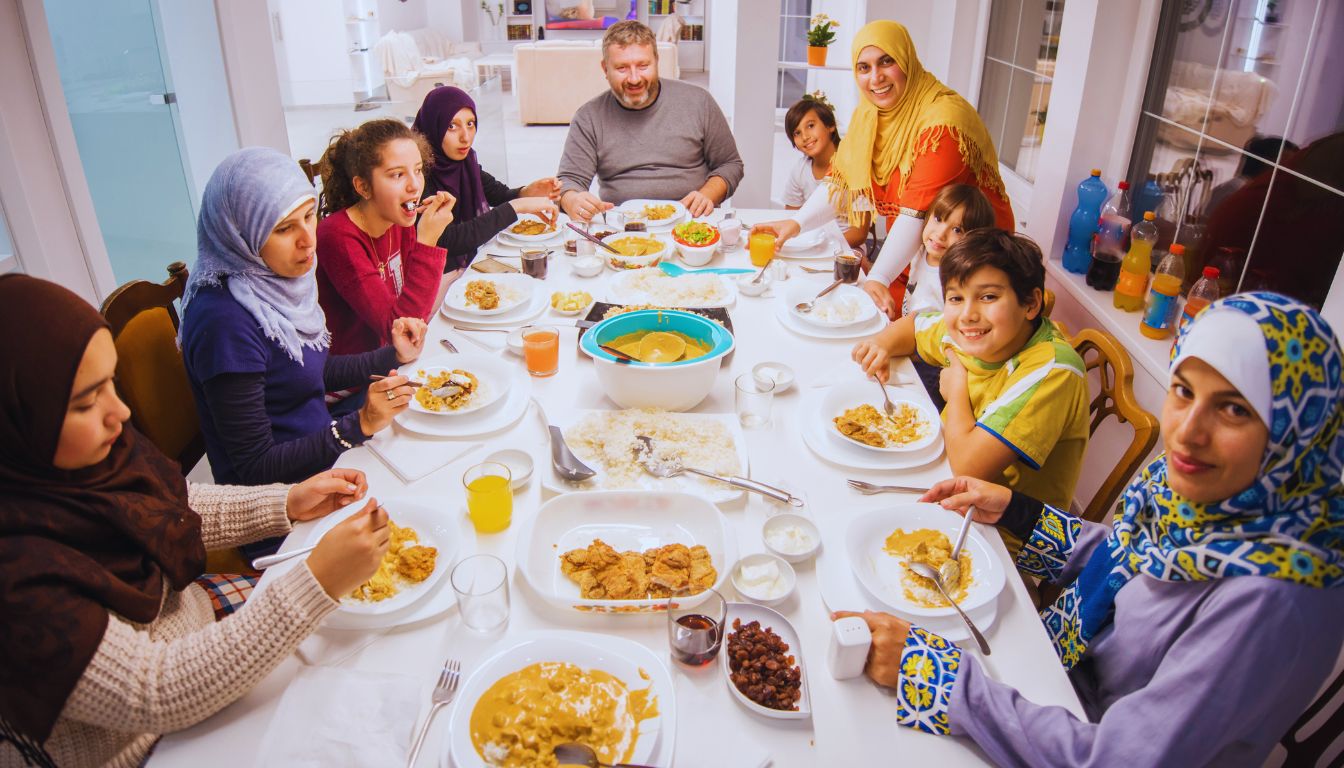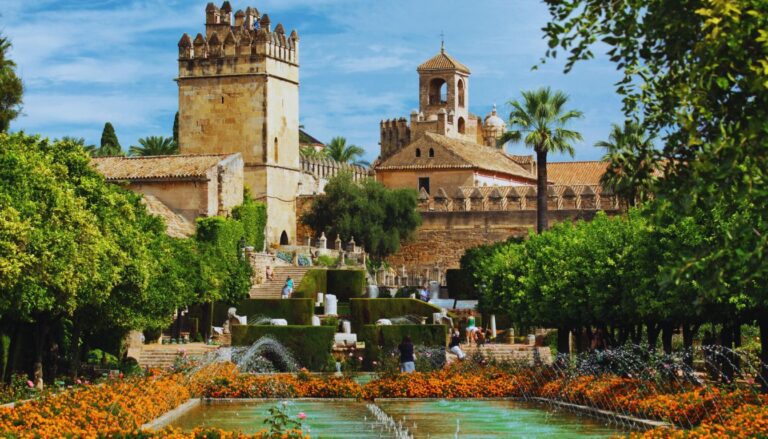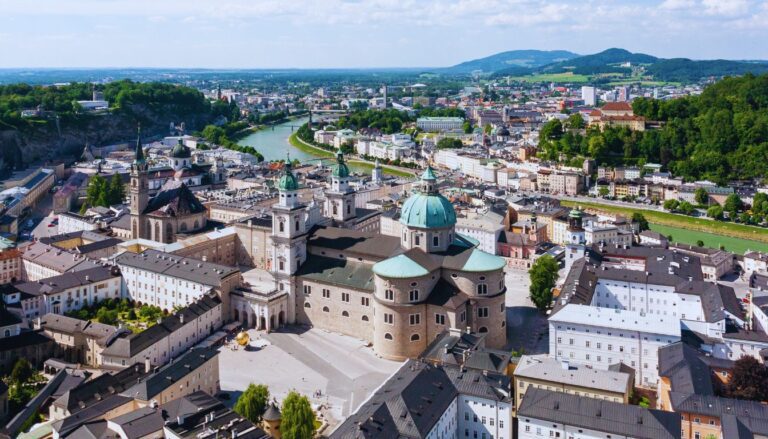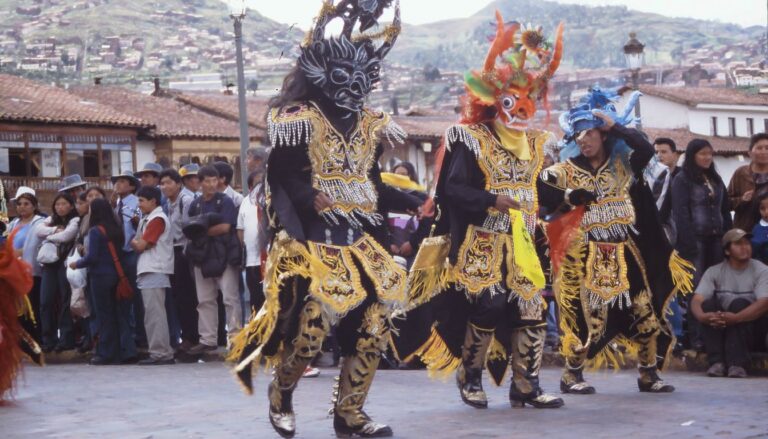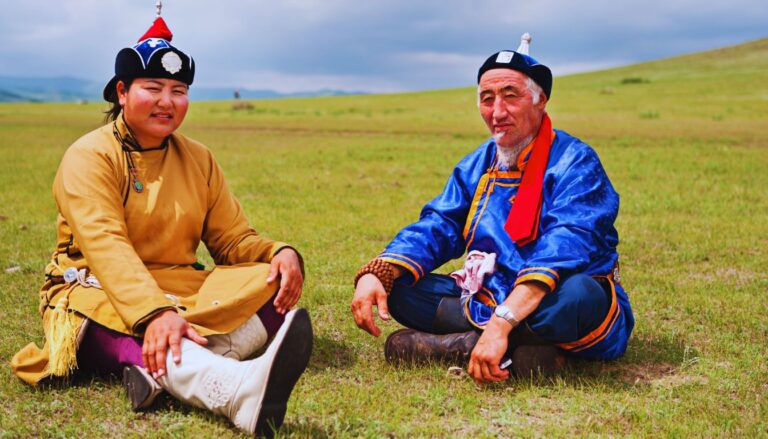In the tapestry of Levantine societies, family stands as the most vibrant and essential thread, weaving together the social, cultural, and economic fabric of life. is known for its rich cultural heritage and diverse populations. Yet across this varied landscape, the primacy of family remains a unifying force, shaping individual identities and societal norms alike.
For Levantine peoples, family is not merely a biological unit but a fundamental social institution that provides support, identity, and a sense of belonging. It serves as the primary conduit for transmitting cultural values, traditions, and social expectations from one generation to the next. The family unit extends far beyond the nuclear structure familiar to many Western societies, encompassing extended relatives and often spanning multiple households.
This deep-rooted familial orientation influences every aspect of Levantine life, from daily interactions and decision-making processes to major life events such as marriages, career choices, and conflict resolution. The strength of family ties often supersedes individual aspirations, with personal decisions frequently made in consideration of their impact on the family as a whole.
As we delve deeper into the role of family in Levantine societies, we will explore the historical foundations, cultural nuances, and contemporary challenges that shape this crucial aspect of Middle Eastern life. By understanding the centrality of family, we gain insight into the social dynamics, values, and cultural identity that define the Levantine experience.
Table of Contents
Defining the Levant: Geographical and Cultural Context
The Levant, derived from the French word “levant” meaning “rising,” refers to the eastern Mediterranean lands where the sun rises. This area, often referred to as the cradle of civilization, has been a crossroads of cultures, religions, and empires for millennia.
Culturally, the Levant is characterized by its rich tapestry of ethnic and religious groups. This diversity is reflected in the region’s languages, with Arabic being the most widely spoken, alongside Hebrew, Aramaic, and various regional dialects.
The Levantine identity is shaped by a shared history that spans ancient civilizations such as the Phoenicians, Canaanites, and Arameans, through the Greek, Roman, and Byzantine periods, to the Islamic conquests and Ottoman rule. This historical legacy has contributed to a unique cultural blend that distinguishes the Levant from other parts of the Middle East.
Despite geographical borders, there remains a sense of shared Levantine identity, particularly evident in common cultural practices, cuisines, and social values. The family structure, which we will explore in depth, is one of the most significant unifying elements across Levantine societies.
Understanding the geographical and cultural context of the Levant is crucial for appreciating the role of family in these societies. The region’s historical depth, cultural diversity, and shared traditions all contribute to the complex and vital role that family plays in Levantine life.
Historical Roots of Levantine Family Structures
The family structures observed in the Levant today have deep historical roots, evolving over centuries of cultural, religious, and political influences. To understand the contemporary Levantine family, we must trace its origins through various historical periods.
Ancient Levantine societies, such as those of the Phoenicians and Canaanites, were organized around clan and tribal structures. These early forms of social organization emphasized collective identity and mutual support, laying the groundwork for the extended family systems that would persist into modern times.
The advent of monotheistic religions, particularly Judaism, Christianity, and Islam, further shaped family structures in the Levant. These religions emphasized the importance of family as a sacred institution, codifying roles and responsibilities within the household. Islamic influence, in particular, brought about specific legal frameworks governing family life, including marriage, divorce, and inheritance laws that still influence family dynamics in many parts of the Levant today.
During the Ottoman period (16th to early 20th century), the family unit became increasingly important as a means of social and economic organization. The Ottoman millet system, which granted a degree of autonomy to different religious communities, reinforced the role of family and kinship networks in maintaining communal identity and providing social welfare.
The colonial era and the subsequent formation of nation-states in the 20th century brought new challenges and changes to Levantine family structures. Urbanization, education, and exposure to Western ideas began to influence traditional family norms, particularly in coastal cities and among the elite classes. However, the core values of family loyalty and interdependence remained largely intact.
Throughout these historical periods, the extended family system has persisted as a dominant feature of Levantine society. This system, which includes grandparents, aunts, uncles, and cousins within the family unit, has provided a social safety net, economic cooperation, and a means of preserving cultural identity in the face of external pressures.
Understanding these historical roots helps explain the resilience and adaptability of Levantine family structures. Despite centuries of change and outside influences, the fundamental importance of family in Levantine societies has remained a constant, reflecting deeply ingrained cultural values and social norms that continue to shape life in the region today.
The Extended Family System: Roles and Responsibilities
The extended family system is a cornerstone of Levantine social structure, encompassing a network of relationships that extends far beyond the nuclear family unit. This system is characterized by close ties between multiple generations and collateral relatives, all of whom play specific roles and bear distinct responsibilities within the family framework.
At the head of the extended family typically stands the patriarch, often the eldest male, who holds significant authority in decision-making processes. This role carries the responsibility of maintaining family honor, resolving disputes, and representing the family in the broader community. The matriarch, usually the patriarch’s wife or the eldest female, plays a crucial role in managing household affairs, nurturing family relationships, and transmitting cultural knowledge to younger generations.
Grandparents hold a revered position within the extended family system. They are respected for their wisdom and life experience, often playing a significant role in childcare and the preservation of family traditions. Their presence provides a sense of continuity and connection to the family’s past.
Aunts and uncles are considered second parents in many Levantine families. They share in the responsibility of raising and guiding nieces and nephews, offering support and resources when needed. This network of support extends to cousins, who are often regarded as close as siblings, creating a wide circle of familial relationships.
The extended family system also delineates clear expectations for children and young adults. They are expected to show respect and deference to their elders, contribute to household responsibilities, and make decisions that reflect positively on the family as a whole. In return, they receive support in education, career development, and major life transitions.
This system of mutual support and obligation creates a strong social safety net. In times of financial hardship, illness, or other crises, family members are expected to rally around those in need, providing emotional, practical, and often financial assistance.
The extended family also plays a crucial role in major life events such as weddings, births, and funerals. These occasions reinforce family bonds and provide opportunities for the entire extended family to come together, strengthening their collective identity.
While the extended family system offers numerous benefits, it can also present challenges, particularly in modern contexts. The expectations of family loyalty and collective decision-making can sometimes conflict with individual aspirations or the demands of contemporary urban life. However, many Levantine families have found ways to adapt this traditional structure to modern realities, maintaining the core values of family solidarity while allowing for greater individual autonomy.
The endurance of the extended family system in Levantine societies underscores its importance as a source of identity, support, and social organization. It continues to shape personal relationships, influence life choices, and provide a framework for understanding one’s place within the larger community.
Marriage and Family Formation in Levantine Societies
Marriage in Levantine societies is traditionally viewed not just as a union between two individuals, but as an alliance between families. This perspective significantly influences the process of family formation and the expectations placed on newly married couples.
Historically, arranged marriages were common in the Levant, with families playing a central role in selecting suitable partners for their children. While this practice has become less prevalent in urban areas and among more educated populations, family involvement in the marriage process remains significant. Even in cases where individuals choose their own partners, parental approval is often sought and valued.
The concept of kafa’a, or compatibility, is important in Levantine marriage considerations. This includes factors such as social status, education level, and religious background. Families often strive to ensure that marriages maintain or enhance their social standing within the community.
Wedding celebrations in the Levant are elaborate affairs that often span several days, involving extended family members and the broader community. These celebrations serve to publicly announce the union and integrate the new couple into the extended family network. Traditional elements such as the dabke (a folk dance) and zaffa (a wedding procession) remain important parts of many Levantine weddings, symbolizing the cultural continuity maintained through family formation.
After marriage, newlyweds are expected to start their own family unit, but often within the context of the extended family system. In many cases, especially in more traditional or rural settings, a new bride may move into her husband’s family home, living with her in-laws. This arrangement facilitates the integration of the new wife into her husband’s family and allows for the sharing of resources and childcare responsibilities.
The pressure to have children soon after marriage is typically strong in Levantine societies, as children are seen as a blessing and a continuation of the family line. Infertility can be a significant source of stress for couples, often leading to familial and societal pressure to seek medical interventions or consider adoption.
In recent decades, changing economic conditions and increasing urbanization have influenced family formation patterns in the Levant. Younger generations are often delaying marriage and childbearing due to educational pursuits, career development, or financial constraints. This shift has created tensions between traditional expectations and modern realities, leading to ongoing negotiations within families about the timing and nature of marriage and family formation.
Despite these changes, the fundamental importance of marriage and family formation in Levantine societies remains strong. It continues to be seen as a crucial step in personal development, social integration, and the fulfillment of familial and cultural expectations. The adaptability of Levantine families in balancing traditional values with contemporary pressures demonstrates the enduring significance of family in shaping individual and collective identities in the region.
Gender Roles and Expectations within Levantine Families
Gender roles and expectations within Levantine families are deeply rooted in cultural traditions, religious beliefs, and historical social structures. While these roles have evolved over time, particularly in urban areas and among more educated populations, traditional gender norms continue to influence family dynamics across much of the Levant.
Traditionally, Levantine societies have been patriarchal, with men expected to be the primary breadwinners and decision-makers for the family. Fathers and elder male relatives typically hold positions of authority within the family structure. They are often responsible for representing the family in public spheres, making major financial decisions, and upholding the family’s honor and reputation in the community.
Women, particularly mothers and grandmothers, have traditionally been seen as the nurturers and caretakers of the family. Their domain has primarily been the household, where they are responsible for child-rearing, maintaining the home, and preserving cultural traditions. Within this domestic sphere, women often wield significant influence, particularly in matters related to family relationships, marriage arrangements, and the moral and cultural education of children.
The concept of family honor, or ‘ird, is closely tied to gender expectations, particularly concerning female family members. Women’s behavior and reputation are often seen as reflections of the entire family’s standing, leading to societal pressures and restrictions on women’s freedoms in more conservative settings.
However, it’s important to note that gender roles in the Levant are not monolithic and have been undergoing significant changes in recent decades. Factors such as increased access to education, urbanization, economic necessities, and exposure to global cultural influences have led to evolving expectations and opportunities for both men and women.
In many urban and more progressive Levantine families, women are increasingly pursuing higher education and professional careers. This shift has led to more egalitarian family structures, with both partners contributing financially and sharing household responsibilities. However, even in these contexts, women often face the challenge of balancing career aspirations with traditional familial expectations.
Men’s roles are also evolving, with younger generations often expected to be more involved in childcare and domestic responsibilities than their fathers or grandfathers were. This change is gradually reshaping the dynamics of Levantine households, although progress varies significantly across different socioeconomic and cultural contexts.
Legal frameworks in Levantine countries have also begun to reflect changing attitudes towards gender roles, with reforms in areas such as personal status laws, inheritance rights, and workplace protections for women. However, the implementation and social acceptance of these legal changes often lag behind the legislation itself.
Religious interpretations continue to play a significant role in shaping gender expectations in many Levantine families, particularly in more conservative communities. Different religious traditions within the region may have varying perspectives on gender roles, adding another layer of complexity to this aspect of family life.
The negotiation between traditional gender roles and modern expectations remains an ongoing process in Levantine societies. While change is evident, particularly in urban and more affluent areas, traditional gender norms continue to exert a strong influence on family dynamics across much of the region. Understanding these evolving gender roles is crucial for comprehending the complex interplay between tradition and modernity in Levantine family life.
Intergenerational Relationships: Respect for Elders
Intergenerational relationships in Levantine societies are characterized by a strong emphasis on respect for elders, a value deeply ingrained in the cultural and religious fabric of the region. This respect is not merely a social courtesy but a fundamental principle that shapes family dynamics and societal structures.
In Levantine families, elders are typically held in high esteem, viewed as repositories of wisdom, experience, and cultural knowledge. This reverence is rooted in religious teachings, cultural traditions, and the historical importance of oral transmission of knowledge and values. The Quran, the Bible, and other religious texts prevalent in the region all emphasize the importance of honoring one’s parents and elders, reinforcing this cultural value.
The practical manifestation of this respect is evident in various aspects of family life:
- Decision-making: Elders often play a significant role in family decision-making processes, particularly regarding important matters such as marriages, business ventures, or conflict resolution. Their opinions are sought and given considerable weight, even by adult children who may have established their own households.
- Care and support: There is a strong expectation that younger family members will care for their elders as they age. Unlike in some Western societies where retirement homes are common, in the Levant, it is generally expected that elderly parents will be cared for by their children or other close relatives. This care is seen not as a burden but as a duty and an opportunity to repay the care received in childhood.
- Living arrangements: Multi-generational households are still common in many parts of the Levant, particularly in more traditional or rural areas. Even when families don’t live under the same roof, it’s common for different generations to live in close proximity, facilitating regular interaction and mutual support.
- Cultural transmission: Elders play a crucial role in passing down cultural traditions, language, and religious practices to younger generations. Grandparents, in particular, often take on significant roles in childcare and the cultural education of their grandchildren.
- Conflict resolution: Elders are often called upon to mediate disputes within the family or even in the broader community, their age and experience lending weight to their judgments.
However, the rapid social and economic changes in the region have begun to impact these traditional intergenerational dynamics. Urbanization, globalization, and the increasing influence of Western cultural norms have led to some shifts in how younger generations interact with their elders:
- Education and technology: As younger generations often have higher levels of formal education and greater familiarity with technology, traditional knowledge hierarchies can sometimes be challenged.
- Career mobility: Economic pressures and career opportunities may lead younger family members to move away from their hometowns, potentially weakening daily intergenerational interactions.
- Changing family structures: Smaller family sizes and the rise of nuclear family units in urban areas can alter the traditional roles of elders within the family structure.
Despite these changes, the fundamental principle of respect for elders remains a cornerstone of Levantine family life. Many families find ways to adapt traditional values to modern realities, maintaining strong intergenerational bonds even as societal norms evolve. This resilience underscores the enduring importance of elders in Levantine culture and the continued significance of intergenerational relationships in shaping family dynamics and social structures in the region.
Family Celebrations and Traditions in the Levant
Family celebrations and traditions play a pivotal role in Levantine societies, serving as occasions to strengthen family bonds, reinforce cultural identity, and pass down customs from one generation to the next. These events, ranging from religious holidays to life cycle celebrations, are characterized by their emphasis on family gatherings, shared meals, and the observance of time-honored rituals.
Religious Holidays:
Given the religious diversity of the Levant, various holidays are celebrated across different communities:
- Ramadan and Eid al-Fitr: For Muslim families, the holy month of Ramadan is a time of fasting, reflection, and family gatherings. The celebration of Eid al-Fitr at the end of Ramadan is marked by family visits, special meals, and gift-giving, especially to children.
- Christmas and Easter: Christian families in the Levant celebrate these holidays with church services, family gatherings, and traditional foods. In places like Bethlehem, these celebrations take on added significance due to their historical and religious importance.
- Rosh Hashanah and Passover: Jewish families in the region observe these holidays with special meals, synagogue services, and family-centered rituals.
Life Cycle Celebrations:
- Births: The arrival of a new family member is celebrated with gatherings where sweets are distributed. In many Muslim families, the aqiqah ceremony, involving the sacrifice of an animal and the naming of the child, is observed.
- Weddings: Levantine weddings are elaborate multi-day affairs involving extended family and community members. Traditional elements like the dabke dance and the zaffa procession remain important, even in more modern celebrations.
- Funerals and Mourning: While somber occasions, funerals bring extended families together to support the bereaved. Mourning periods and memorial gatherings (azza in Arabic) are observed, reinforcing family and community bonds.
Seasonal and Cultural Traditions:
- Harvest Celebrations: In rural areas, families often come together to celebrate harvests, particularly of olives and grapes, which play a significant role in Levantine cuisine and economy.
- Mawlid: The celebration of the Prophet Muhammad’s birthday is an important event for many Muslim families, often involving special meals and gatherings.
- Saint’s Days: In Christian communities, the feast days of various saints are celebrated with family gatherings and traditional foods.
Food and Hospitality:
Central to all Levantine family celebrations is the emphasis on food and hospitality. Large family meals featuring traditional dishes are a hallmark of these gatherings. The preparation and sharing of food is seen as an expression of love and a means of preserving cultural heritage.
Key dishes might include:
- Mansaf in Jordan
- Kibbeh in Syria and Lebanon
- Maqluba in Palestine
- Hummus and Falafel across the region
The tradition of hospitality, deeply ingrained in Levantine culture, is particularly evident during these celebrations. Families often open their homes to extended family, friends, and even acquaintances, reflecting the cultural value placed on generosity and community.
Adapting Traditions in Modern Times:
While many traditional celebrations persist, they are also evolving to accommodate modern lifestyles:
- Diaspora communities maintain connections to their heritage through these celebrations, often adapting them to their new environments.
- Social media and technology allow for virtual participation in family events for members living far away.
- Younger generations may blend traditional elements with more contemporary celebration styles, especially in urban areas.
Family celebrations and traditions in the Levant serve as a crucial mechanism for cultural continuity and family cohesion. They provide a space for intergenerational interaction, the transmission of values and customs, and the reinforcement of family and community ties. Even as Levantine societies undergo rapid change, these celebrations remain a vital link to cultural heritage and a cornerstone of family life in the region.
The Impact of Modernization on Levantine Family Dynamics
The process of modernization has had a profound impact on family dynamics across the Levant, challenging traditional structures and values while simultaneously creating new forms of family organization and interaction. This impact is multifaceted, affecting various aspects of family life:
Family Structure:
- The traditional extended family model is gradually giving way to nuclear family units, especially in urban areas.
- Family sizes are decreasing due to factors such as increased access to education, family planning, and changing economic conditions.
- Multi-generational households are becoming less common, though they still persist in more rural and traditional settings.
Marriage Patterns:
- The age of first marriage is increasing, particularly for women, as education and career pursuits take precedence.
- Arranged marriages are declining in favor of love marriages, especially among more educated urban populations.
- Interreligious and intercultural marriages are becoming more common, though still often face societal challenges.
Gender Roles:
- Women’s participation in higher education and the workforce has increased significantly, altering traditional gender dynamics within families.
- Men are increasingly involved in childcare and household responsibilities, though change in this area is often slower.
- Legal reforms in many Levantine countries have improved women’s rights, influencing family dynamics and decision-making processes.
Economic Factors:
- The shift from agrarian to industrial and service-based economies has changed the economic role of the family unit.
- Increased cost of living in urban areas often necessitates dual-income households, affecting childcare arrangements and family time.
- Economic pressures and opportunities have led to increased internal and international migration, sometimes separating family members.
Communication and Technology:
- The widespread adoption of smartphones and social media has transformed how family members communicate and maintain relationships across distances.
- Access to global media and the internet exposes family members to diverse cultural influences, sometimes creating intergenerational tensions.
Education:
- Higher levels of education, particularly for women, have led to delayed marriage and childbearing, as well as changing expectations within marriages.
- The emphasis on formal education has altered the traditional roles of family elders as primary sources of knowledge and guidance.
Urbanization:
- The migration from rural to urban areas has weakened traditional community and extended family networks.
- Urban lifestyles have introduced new challenges to family cohesion, such as longer work hours and increased individual autonomy.
Cultural Identity:
- Globalization has led to a blending of traditional Levantine values with more Western-influenced perspectives, particularly among younger generations.
- There’s often a tension between preserving cultural heritage and adapting to global trends, which plays out within family dynamics.
Healthcare and Lifespan:
- Improved healthcare has led to longer lifespans, changing the nature of elder care within families.
- Modern medicine has also impacted fertility choices and family planning.
Legal and Social Welfare Systems:
- The development of state-provided social services in some Levantine countries has reduced families’ roles as sole providers of social security.
- Changes in personal status laws have affected issues like divorce, child custody, and inheritance, influencing family structures and dynamics.
While these changes are significant, it’s important to note that the impact of modernization is not uniform across the Levant. Rural areas, lower-income groups, and more conservative communities often maintain more traditional family structures and values. Additionally, many families find ways to blend modern practices with traditional values, creating hybrid forms of family organization.
The resilience and adaptability of Levantine family structures in the face of modernization highlight the enduring importance of family in these societies. While change is inevitable, the core values of family loyalty, intergenerational respect, and mutual support continue to play a crucial role in shaping Levantine social and cultural identity.
Challenges Facing Levantine Families in the 21st Century
Levantine families in the 21st century face a complex array of challenges that test the resilience of traditional family structures and values. These challenges stem from a combination of global trends, regional instabilities, and internal societal changes:
Political Instability and Conflict:
- Ongoing conflicts in parts of the Levant (e.g., Syria, Palestine) have led to family displacement, separation, and trauma.
- Political uncertainties create economic instability, affecting family livelihoods and future planning.
- Refugee crises have forced many families to adapt to new environments, often straining family bonds.
Economic Pressures:
- High unemployment rates, particularly among youth, delay marriage and family formation.
- Rising costs of living, especially in urban areas, create financial stress for families.
- Economic migration separates family members, challenging traditional family structures.
Changing Social Norms:
- Tension between traditional values and more globalized, Western-influenced perspectives, particularly among younger generations.
- Evolving gender roles and expectations create new dynamics within families.
- Increasing individualism sometimes conflicts with traditional collectivist family values.
Demographic Shifts:
- Aging populations in some Levantine countries strain traditional elder care systems.
- Declining birth rates in urban areas change family structures and dynamics.
- Rural-to-urban migration weakens extended family networks and traditional support systems.
Technology and Social Media:
- While facilitating communication, technology can also create generational divides and privacy concerns within families.
- Social media exposure to global lifestyles can create unrealistic expectations and dissatisfaction with traditional family roles.
Education and Career Aspirations:
- Increased emphasis on higher education, especially for women, sometimes conflicts with traditional expectations of early marriage and childbearing.
- Career ambitions of younger generations may clash with family obligations and expectations.
Healthcare and Mental Health:
- While healthcare has improved, access to quality care remains a challenge for many families, especially in conflict-affected areas.
- Mental health issues, often stigmatized, pose challenges for family well-being and cohesion.
Environmental Concerns:
- Climate change and environmental degradation in the region affect agricultural livelihoods and create new economic pressures on families.
- Water scarcity in parts of the Levant creates additional stress on family resources and lifestyles.
Legal and Rights Issues:
- Ongoing debates about personal status laws (e.g., marriage, divorce, inheritance) create uncertainties and conflicts within families.
- Women’s rights movements challenge traditional family structures and gender roles, sometimes leading to intrafamilial tensions.
Cultural Preservation:
- Balancing cultural preservation with adaptation to global trends poses a challenge for many families.
- Language shifts, particularly the decline of indigenous languages in favor of global languages, affect cultural transmission within families.
Interfaith and Intercultural Dynamics:
- In diverse Levantine societies, interfaith and intercultural marriages present both opportunities and challenges for family cohesion.
- Religious and cultural differences can create tensions within extended family networks.
Urbanization and Housing:
- Rapid urbanization strains housing availability and affordability, affecting family living arrangements.
- Urban lifestyles can isolate nuclear families from extended family support systems.
Despite these challenges, Levantine families demonstrate remarkable resilience and adaptability. Many families find innovative ways to maintain core values while adapting to new realities. Support networks, both within extended families and communities, continue to play a crucial role in helping families navigate these challenges.
Addressing these issues often requires a multi-faceted approach, involving not just families themselves, but also policymakers, educators, and community leaders. Strategies that respect cultural values while acknowledging the need for adaptation to modern realities are likely to be most effective in supporting Levantine families through these 21st-century challenges.
Diaspora and Transnational Levantine Families
The Levantine diaspora, consisting of communities that have migrated from the region to various parts of the world, has significantly impacted family dynamics and cultural identities. These transnational families maintain connections across borders, negotiating between their ancestral heritage and the cultures of their adopted homes. This phenomenon has several key aspects:
Historical Context:
- Levantine migration has occurred in waves, driven by factors such as economic opportunities, political instability, and conflict.
- Major diaspora communities exist in the Americas, Europe, Australia, and the Gulf countries.
Maintenance of Family Ties:
- Transnational families often maintain strong connections with relatives in the Levant through regular communication, remittances, and visits.
- Technology, especially social media and video calls, plays a crucial role in maintaining these connections across distances.
Cultural Preservation and Adaptation:
- Diaspora families often strive to preserve Levantine cultural practices, languages, and traditions.
- Cultural centers, religious institutions, and community organizations in host countries facilitate this preservation.
- Simultaneously, these families adapt to and integrate aspects of their host cultures, creating hybrid identities.
Marriage Patterns:
- Some diaspora families maintain preferences for endogamous marriages (within the same ethnic or religious community).
- Others embrace exogamous marriages, leading to multicultural family units.
- “Homeland” marriages, where individuals from the diaspora marry partners from the Levant, remain common in some communities.
Generational Differences:
- Second and third-generation diaspora members often have different relationships with their Levantine heritage compared to their parents or grandparents.
- This can lead to intergenerational tensions regarding cultural practices, language use, and identity.
Economic Impacts:
- Remittances from diaspora communities play a significant role in supporting families and economies in the Levant.
- Transnational business networks often leverage family connections across borders.
Return Migration and Circular Migration:
- Some diaspora members choose to return to the Levant, either permanently or temporarily, impacting family structures and dynamics.
- Circular migration, where individuals move between the diaspora and the Levant regularly, creates new forms of transnational family life.
Political Engagement:
- Diaspora families often remain engaged with political issues in the Levant, influencing both their host countries’ foreign policies and developments in their ancestral homelands.
Education and Professional Development:
- Many diaspora families emphasize education as a means of success and integration in their new homes.
- Professional skills and education acquired abroad can influence family dynamics when individuals return to the Levant.
Challenges:
- Maintaining cultural and linguistic heritage across generations can be challenging in diaspora settings.
- Navigating different legal systems (e.g., in matters of marriage, divorce, inheritance) can complicate family affairs.
- The emotional toll of separation from extended family members in the Levant can impact family well-being.
Identity Formation:
- Diaspora family members often develop complex, multilayered identities that blend Levantine heritage with the cultures of their host countries.
- This can lead to unique expressions of “Levantine-ness” that differ from those in the homeland.
Religious Practices:
- Religious institutions in diaspora communities often play a central role in preserving cultural identity and providing a sense of community.
- Adaptations in religious practices may occur to accommodate life in non-Levantine contexts.
The experience of diaspora and transnational Levantine families highlights the flexibility and resilience of family structures and cultural identities. These families often become bridges between cultures, contributing to both their ancestral homelands and their adopted countries. Their experiences reflect the broader global trends of migration and cultural exchange, demonstrating how family bonds can persist and evolve across geographical boundaries.
As globalization continues to shape our world, the experiences of diaspora and transnational Levantine families offer valuable insights into the future of family structures and cultural identities in an increasingly interconnected world. Their ability to maintain core cultural values while adapting to new environments exemplifies the enduring strength and adaptability of Levantine family traditions.
Conclusion: The Enduring Significance of Family in Levantine Identity
As we conclude our exploration of the role of family in Levantine societies, it becomes evident that despite the myriad challenges and changes brought about by modernization, globalization, and regional instabilities, family remains a cornerstone of Levantine cultural identity and social organization.
The enduring significance of family in Levantine identity can be summarized in several key points:
- Cultural Continuity: Families continue to serve as the primary vehicle for transmitting cultural values, traditions, and practices from one generation to the next. Even in the face of rapid social change, many core family values persist, adapting to new contexts while maintaining their essential character.
- Social Support System: In a region often characterized by political and economic uncertainties, the family remains a crucial source of emotional, financial, and practical support. The extended family network continues to provide a safety net that often surpasses state-provided social services.
- Identity Formation: Family background, including religious, ethnic, and regional affiliations, plays a significant role in shaping individual identities. Even as younger generations embrace more globalized outlooks, family heritage remains a key component of self-identification.
- Adaptability and Resilience: Levantine families have demonstrated remarkable adaptability in the face of challenges. From navigating political conflicts to adapting to new technologies, families have found ways to maintain their core functions while evolving to meet new realities.
- Bridge Between Tradition and Modernity: Levantine families often serve as the primary arena where traditional values and modern influences are negotiated. This process of negotiation allows for cultural evolution while maintaining a sense of continuity with the past.
- Economic Unit: Despite shifts towards individualism in some sectors, the family often continues to function as an important economic unit. From family businesses to shared resources among extended family networks, economic cooperation within families remains significant.
- Source of Social Capital: Family connections continue to play a crucial role in social and professional networking, particularly in societies where personal relationships are highly valued in business and public life.
- Anchor in Times of Change: In the context of political instabilities, economic uncertainties, and rapid social change, family provides a sense of stability and belonging that is deeply valued in Levantine cultures.
- Transnational Bonds: For diaspora communities, family ties serve as crucial links to ancestral homelands, facilitating cultural preservation and transnational connections that span continents.
- Evolving Gender Dynamics: While traditional gender roles persist in many families, there is an ongoing evolution in gender relations within Levantine families, reflecting broader societal changes and providing a microcosm for examining shifting social norms.
As we look to the future, it is clear that Levantine families will continue to face challenges. The ongoing negotiation between tradition and modernity, the impacts of political and economic instabilities, and the influences of globalization will undoubtedly shape family structures and dynamics in the years to come. However, the historical resilience and adaptability of Levantine family structures suggest that they will continue to evolve while maintaining their central role in society.
In conclusion, while the forms and functions of family in Levantine societies may continue to evolve, its fundamental importance as a source of identity, support, and cultural continuity remains undiminished. The family stands as a testament to the resilience and adaptability of Levantine cultures, bridging past and present, and providing a foundation for navigating the complexities of the modern world. As such, it continues to be not just a cornerstone of individual lives, but a pillar of cultural identity that shapes the social fabric of the entire region.
Discover the must-visit cultural destinations of Levantine culture

